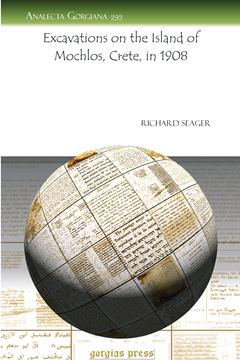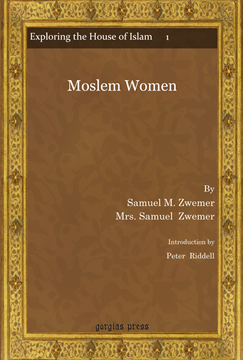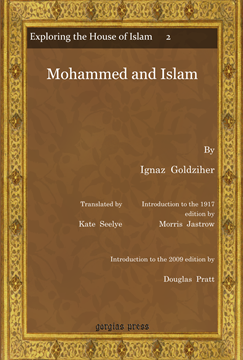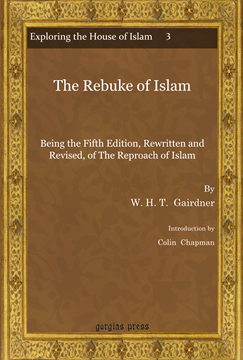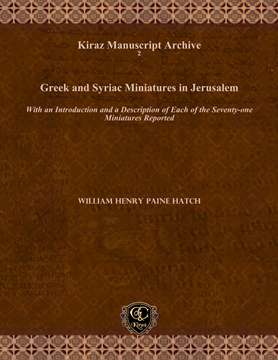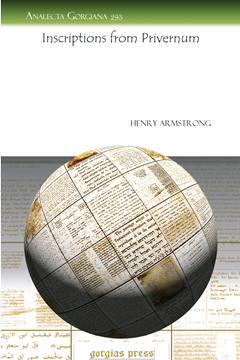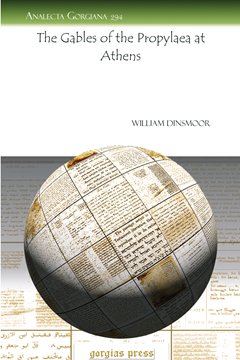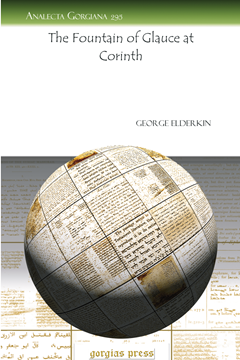Excavations on the Island of Mochlos, Crete, in 1908
Series: Analecta Gorgiana 292
ISBN: 978-1-60724-521-6
The original site report detailing the discovery and first excavations at the Minoan settlement on Mochlos, Crete.
$37.00 (USD) $22.20 (USD)
Moslem Women
Series: Exploring the House of Islam: Perceptions of Islam in the Period of Western Ascendancy 1800-1945 1
ISBN: 978-1-60724-409-7
Moslem Women is built around six main chapters; half are devoted to the place and experiences of Moslem women, and half consider the Christian mission to these women. The Zwemers acknowledge some of the great women of Islamic history, such as Rabia, the famous early mystic, and Nurah Mahal, wife of the Mughal Emperor Jahangir. They speak in glowing terms about advances in the women’s situation in post-Ottoman Turkey. Their work is dedicated to serving Muslims and to seeing them as people rather than as faceless numbers; it is an excellent model for today’s Christians who feel called to engagement with Islam.
$189.00 (USD) $113.40 (USD)
Mohammed and Islam
By Ignaz Goldziher; Translated by Kate Seelye; Introduction to the 1917 edition by Morris Jastrow; Introduction to the 2009 edition by Douglas Pratt
Series: Exploring the House of Islam: Perceptions of Islam in the Period of Western Ascendancy 1800-1945 2
ISBN: 978-1-60724-410-3
Ignaz Goldziher was a pre-eminent scholar of Islam during the late 19th and early 20th centuries. This book encapsulates his own lifetime of work and provides something of an historical commentary on his epoch in the Western academic study of Islam. One of its strengths is that Goldziher’s investigation of historical development probes into underlying religious motivations and allied theological issues. The book quickly became a classic of its day. It remains a classic that, in our day, is well worth re-visiting as it can still inform our understanding of contemporary Islam, whose roots lie in all that Goldziher covers.
$180.00 (USD) $108.00 (USD)
The Rebuke of Islam
Being the Fifth Edition, Rewritten and Revised, of The Reproach of Islam
By W. H. T. Gairdner; Introduction by Colin Chapman
Series: Exploring the House of Islam: Perceptions of Islam in the Period of Western Ascendancy 1800-1945 3
ISBN: 978-1-60724-411-0
Temple Gairdner’s The Rebuke of Islam, published in 1920, has long been recognized as one of the classics of Christian response to Islam in the early 20th century. Part of its significance is that Gairdner’s approach sums up the very best of earlier approaches (especially in the 19th century), but breaks significantly new ground and therefore points forward to approaches that have been developing between his time and the present day.
$154.00 (USD) $92.40 (USD)
Christianity and Islam
The Bible and the Koran
By W. R. W. Stephens; Introduction by Clinton Bennett
Series: Exploring the House of Islam: Perceptions of Islam in the Period of Western Ascendancy 1800-1945 4
ISBN: 978-1-60724-412-7
Based on lectures delivered in Chichester Cathedral, this book mirrors typical nineteenth century English attitudes toward the non-European space. This needed Christianity and European political oversight, or its people would remain backward and spiritually lost. The book shows how someone whose inclinations were liberal could look at Islam and dislike what he saw. On the other hand, the book also shows that a non-specialist scholar in the second half of the nineteenth century could write seriously if not impartially about Islam using material available in European languages. This suggests that Islam was a subject of increasing interest in Victorian England.
$133.00 (USD) $79.80 (USD)
Its Saints and Shrines
An Introduction to the Study of Sufism with Special Reference to India
By John A. Subhan; Introduction by David Singh
Series: Exploring the House of Islam: Perceptions of Islam in the Period of Western Ascendancy 1800-1945 5
ISBN: 978-1-60724-413-4
A convert to Christianity from the Qadiri Order, John A. Subhan is well-known for his seminal work, Sufism: Its Saints and Shrines. Sufism prepared him for faith in Jesus and his Injil. His Sufi background and intimate knowledge of its beliefs and practices enabled him to explain Sufism to others. All ten chapters in Sufism are interesting, including chapter eight, which contains a comparative discussion of Sufism in the broader Hindu context. It is a must read for all, not only because it is a window into the world of a great Sufi convert but also because his insight is still relevant today.
$193.00 (USD) $115.80 (USD)
Greek and Syriac Miniatures in Jerusalem
With an Introduction and a Description of Each of the Seventy-one Miniatures Reported
Series: Kiraz Manuscript Archive 2
ISBN: 978-1-60724-417-2
Hatch presents in this volume seventy-one Greek and Syriac miniatures which he describes and reproduces in beautiful images. These belong to the Byzantine period, most of which were painted in the Second Golden Age. Eight belong to the thirteenth century, but the rest are the works of artists who lived in the eleventh and twelfth centuries. All are religious in character, some being scenes and others portraits. The present volume presents Hatch’s images from 1931 after applying computer digital enhancements to them. The result is lucid.
$350.00 (USD) $210.00 (USD)
Inscriptions from Privernum
Series: Analecta Gorgiana 293
ISBN: 978-1-60724-522-3
In this site report Armstrong presents the surviving evidence for both the Volscian remains and the subsequent Roman settlement including sections on the inscriptions, site topography and history, and plans.
$45.00 (USD) $27.00 (USD)
The Gables of the Propylaea at Athens
Series: Analecta Gorgiana 294
ISBN: 978-1-60724-523-0
William Dinsmoor, one of the experts who directed the first reconstruction of the Athenian Acropolis, here sets out the process by which he was able to piece the gables of the Propylaia together from surviving fragments.
$40.00 (USD) $24.00 (USD)
The Fountain of Glauce at Corinth
Series: Analecta Gorgiana 295
ISBN: 978-1-60724-524-7
In this paper Elderkin gives a detailed description of the remains of the Fountain of Glauce in Corinth and the engineering methods used in its construction.
$37.00 (USD) $22.20 (USD)
